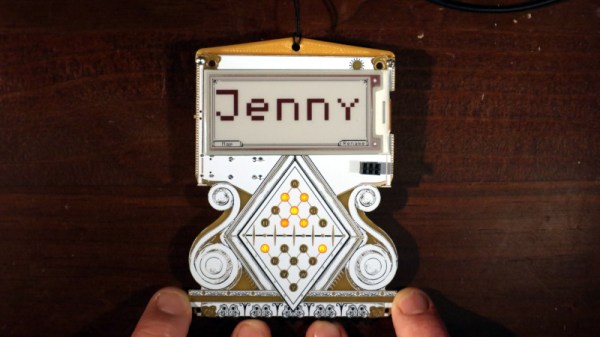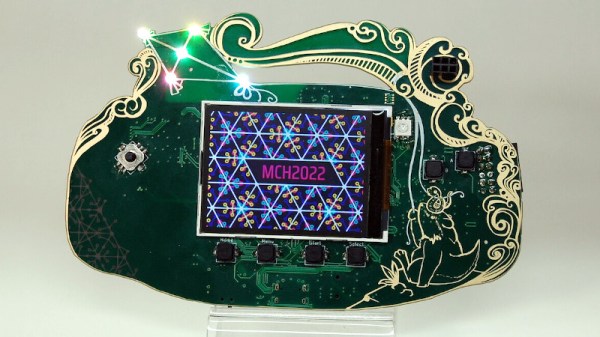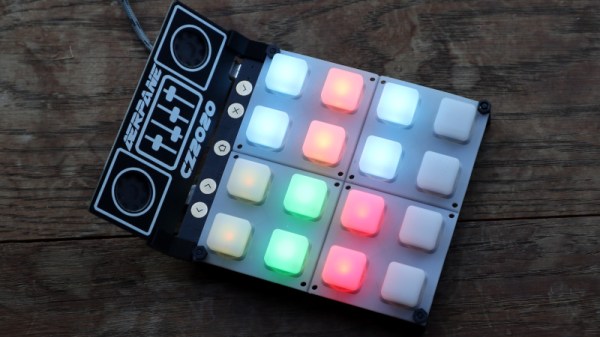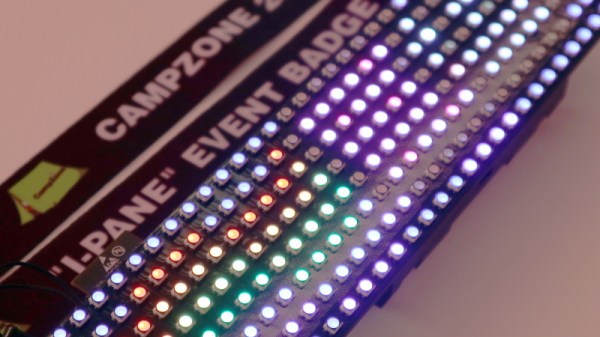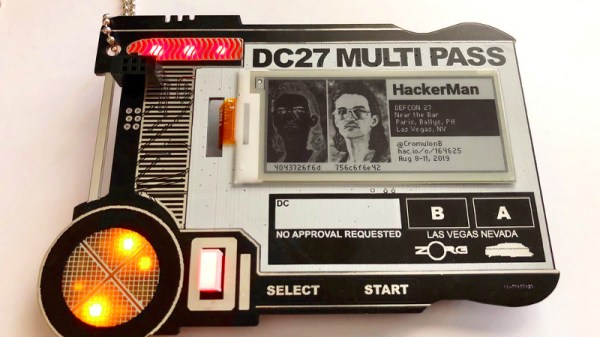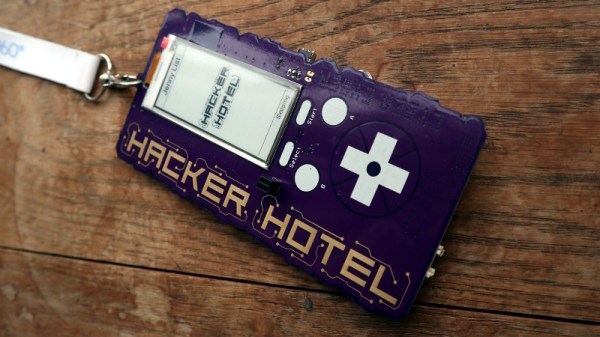A few weeks ago we brought you news of a new palmtop computer for hackers, powered by the new Espressif ESP32-P4 application processor. The Tanmatsu (Japanese for “Terminal”) is a compact handheld device with a QWERTY keyboard and an 800×480 DSI display, and while it currently exists at the final prototype stage there is a pre-order page upon which you can reserve an early production model for yourself. We’ve been lucky enough to be invited to give one a close-up inspection, so it was time to hot-foot it on the train to a Dutch hackerspace in order to bring you a preview.
A Little History, And First Impressions
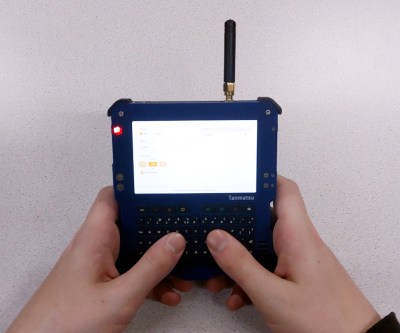
Before looking at the device, it’s time for a little history. The Tanmatsu has its origin in badge.team, the Netherlands-based group that has produced so many European event badges over the years, and it was destined to eventually become the badge for the upcoming WHY2025 hacker camp. As sometimes happens in any community there has been a significant difference of opinion between the event orga and the badge.team folks that it’s inappropriate to go into here, so now it exists as a standalone project. It’s destined to be open-source in its entirety including hardware and software (and we will hold them to that, never fear), but because of the events surrounding its conception the full repositories will be not be made public until some time late in the summer.
Picking the Tanmatsu up and holding it, it’s a rectangular slab a bit larger and thicker than a CD case with that QWERTY keyboard and display on its front face, an array of ports including an SMA socket for a LoRA antenna on its sides, and an expansion connector on its rear. It has a sandwich construction, with a PCB front face, a 3D printed spacer, the PCB itself, and a 3D printed back cover all held together with a set of screws. The recesses on its bottom edge and the lower halves of the sides locate neatly with fingers and thumbs when it’s held in two hands for two-thumb typing. The keyboard is a silicone moulding as is common on this type of device, and while the keys are quite small it was not difficult to type on it. The display meanwhile feels of much higher quality than the SPI parts previously seen on badges. Continue reading “A Closer Look At The Tanmatsu”


